All about India
54 element(s) found
Document(s)
Death Penalty in India – Annual statistics report 2025 & 10 Years of Death Penalty Data (2016-2025)
By The Square Circle Clinic, NALSAR University of Law, on 6 February 2026
2026
NGO report
Warning: Undefined variable $liste_type_doc in /home/worldcoa/coalition2020/wp-content/themes/WCADP/template-parts/contents-document.php on line 21
Warning: Undefined variable $liste_themes in /home/worldcoa/coalition2020/wp-content/themes/WCADP/template-parts/contents-document.php on line 35
Clemency
Death Row Conditions
Fair Trial
Warning: Undefined variable $liste_pays in /home/worldcoa/coalition2020/wp-content/themes/WCADP/template-parts/contents-document.php on line 40
India
Warning: Undefined variable $tag_langue in /home/worldcoa/coalition2020/wp-content/themes/WCADP/template-parts/contents-document.php on line 85
More details See the document
- Document type NGO report
- Countries list India
- Themes list Clemency / Death Row Conditions / Fair Trial
Warning: Undefined variable $lien_langue in /home/worldcoa/coalition2020/wp-content/themes/WCADP/template-parts/contents-document.php on line 127
Document(s)
Living on death row in India: The many ‘becomings’
By Maitreyi Misra and Zeba Sikora, on 12 December 2025
2025
Article
Warning: Undefined variable $liste_type_doc in /home/worldcoa/coalition2020/wp-content/themes/WCADP/template-parts/contents-document.php on line 21
Warning: Undefined variable $liste_pays in /home/worldcoa/coalition2020/wp-content/themes/WCADP/template-parts/contents-document.php on line 40
India
Warning: Undefined variable $tag_langue in /home/worldcoa/coalition2020/wp-content/themes/WCADP/template-parts/contents-document.php on line 85
More details See the document
- Document type Article
- Countries list India
Warning: Undefined variable $liste_themes in /home/worldcoa/coalition2020/wp-content/themes/WCADP/template-parts/contents-document.php on line 114
Warning: Undefined variable $lien_langue in /home/worldcoa/coalition2020/wp-content/themes/WCADP/template-parts/contents-document.php on line 127
Document(s)
The Meaning and Challenges of an Interdisciplinary Sentencing Exercise: Reflections from a Death Penalty Mitigation Practice
By Anup Surendranath and Maitreyi Misra, on 17 October 2025
2025
Academic Article
Warning: Undefined variable $liste_type_doc in /home/worldcoa/coalition2020/wp-content/themes/WCADP/template-parts/contents-document.php on line 21
Warning: Undefined variable $liste_pays in /home/worldcoa/coalition2020/wp-content/themes/WCADP/template-parts/contents-document.php on line 40
India
Warning: Undefined variable $tag_langue in /home/worldcoa/coalition2020/wp-content/themes/WCADP/template-parts/contents-document.php on line 54
Warning: Undefined variable $lien_langue in /home/worldcoa/coalition2020/wp-content/themes/WCADP/template-parts/contents-document.php on line 55
fr
More details See the document
The article “The Meaning and Challenges of an Interdisciplinary Sentencing Exercise: Reflections from a Death Penalty Mitigation Practice” published in Socio-Legal Review examines how India’s death penalty framework requires a socio-legal or interdisciplinary approach that combines law with social sciences.
- Document type Academic Article
- Countries list India
Warning: Undefined variable $liste_themes in /home/worldcoa/coalition2020/wp-content/themes/WCADP/template-parts/contents-document.php on line 114
- Available languages The Meaning and Challenges of an Interdisciplinary Sentencing Exercise: Reflections from a Death Penalty Mitigation Practice
Document(s)
Death Penalty in India: Annual Statistics Report 2024
on 31 January 2025
2025
NGO report
Warning: Undefined variable $liste_type_doc in /home/worldcoa/coalition2020/wp-content/themes/WCADP/template-parts/contents-document.php on line 21
Warning: Undefined variable $liste_themes in /home/worldcoa/coalition2020/wp-content/themes/WCADP/template-parts/contents-document.php on line 35
Death Row Conditions
Fair Trial
Warning: Undefined variable $liste_pays in /home/worldcoa/coalition2020/wp-content/themes/WCADP/template-parts/contents-document.php on line 40
India
Moratorium
Warning: Undefined variable $tag_langue in /home/worldcoa/coalition2020/wp-content/themes/WCADP/template-parts/contents-document.php on line 85
More details See the document
This annual publication presents changes in the death row population as well as political and legal developments in the administration of the death penalty in India each year. The statistics are compiled through a combination of data mining of court websites, media monitoring and Right to Information applications.
- Document type NGO report
- Countries list India
- Themes list Death Row Conditions / Fair Trial / Moratorium
Warning: Undefined variable $lien_langue in /home/worldcoa/coalition2020/wp-content/themes/WCADP/template-parts/contents-document.php on line 127
Document(s)
New digital exhibition: Capital Letters from death row India
By Project 39A, on 21 November 2024
2024
NGO report
Warning: Undefined variable $liste_type_doc in /home/worldcoa/coalition2020/wp-content/themes/WCADP/template-parts/contents-document.php on line 21
Warning: Undefined variable $liste_themes in /home/worldcoa/coalition2020/wp-content/themes/WCADP/template-parts/contents-document.php on line 35
Death Row Conditions
Warning: Undefined variable $liste_pays in /home/worldcoa/coalition2020/wp-content/themes/WCADP/template-parts/contents-document.php on line 40
India
Warning: Undefined variable $tag_langue in /home/worldcoa/coalition2020/wp-content/themes/WCADP/template-parts/contents-document.php on line 85
More details See the document
Project 39A has launched Capital Letters from death row India, a unique digital exhibition curated by reFrame. Featuring letters, artwork, audio recordings, and photographs created by prisoners on death row, the exhibition offers a deeply humanizing look into their lived experiences. Through eight thematic sections, visitors can explore the complex realities of life on death row and engage with stories of hope, trauma, and resilience.
- Document type NGO report
- Countries list India
- Themes list Death Row Conditions
Warning: Undefined variable $lien_langue in /home/worldcoa/coalition2020/wp-content/themes/WCADP/template-parts/contents-document.php on line 127
Document(s)
Death Penalty in India: Annual Statistics Report 2023
By Project 39A, on 15 February 2024
2024
NGO report
Warning: Undefined variable $liste_type_doc in /home/worldcoa/coalition2020/wp-content/themes/WCADP/template-parts/contents-document.php on line 21
Warning: Undefined variable $liste_pays in /home/worldcoa/coalition2020/wp-content/themes/WCADP/template-parts/contents-document.php on line 40
India
Warning: Undefined variable $tag_langue in /home/worldcoa/coalition2020/wp-content/themes/WCADP/template-parts/contents-document.php on line 85
More details See the document
Published in 2023.
This is the eighth edition of the Death Penalty in India: Annual Statistics Report. This annual publication presents changes in the death row population as well as political and legal developments in the administration of the death penalty in India each year. The statistics are compiled through a combination of data mining of court websites, media monitoring and Right to Information applications.
- Document type NGO report
- Countries list India
Warning: Undefined variable $liste_themes in /home/worldcoa/coalition2020/wp-content/themes/WCADP/template-parts/contents-document.php on line 114
Warning: Undefined variable $lien_langue in /home/worldcoa/coalition2020/wp-content/themes/WCADP/template-parts/contents-document.php on line 127
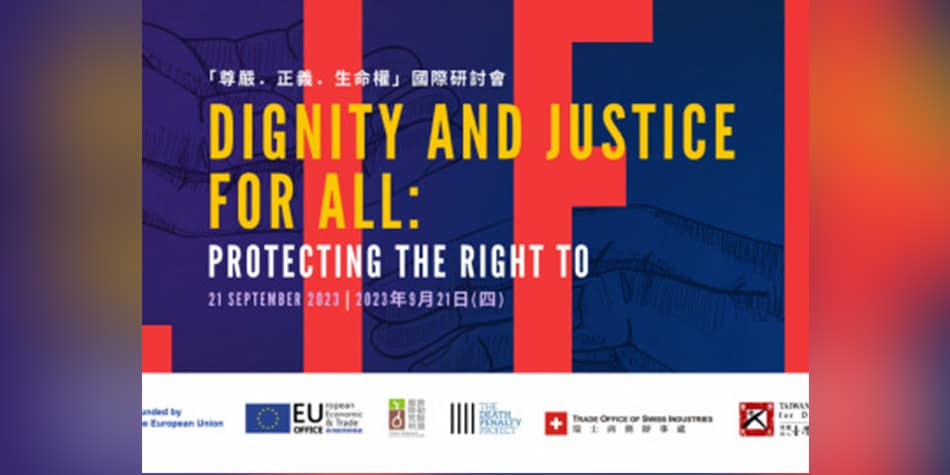
Article(s)
Symposium international sur le droit à la vie à Taiwan
By L'Alliance taïwanaise pour l'abolition de la peine de mort (TAEDP), on 12 January 2024
L’Alliance taïwanaise pour l’abolition de la peine de mort (TAEDP) a organisé une série d’événements, dont un séminaire international, une visite de prison et des réunions, du 19 au 22 septembre 2023, pour célébrer son 20e anniversaire.
2024
Cruel, Inhuman and Degrading Treatment and Punishment
Death Row Conditions
Warning: Undefined variable $tmp in /home/worldcoa/coalition2020/wp-content/themes/WCADP/template-parts/contents.php on line 27
India
Taiwan

Article(s)
International Symposium on the Right to Life in Taiwan
By Taiwan Alliance to End the Death Penalty (TAEDP), on 12 January 2024
The Taiwan Alliance to End the Death Penalty (TAEDP) held a series of events including an international seminar, prison visit, and meetings that took place from 19-22 September 2023 to celebrate its 20th anniversary.
Cruel, Inhuman and Degrading Treatment and Punishment
Death Row Conditions
Warning: Undefined variable $tmp in /home/worldcoa/coalition2020/wp-content/themes/WCADP/template-parts/contents.php on line 27
India
Taiwan
Document(s)
Annual Statistics Report 2022
By Project 39A, on 22 February 2023
2023
NGO report
Warning: Undefined variable $liste_type_doc in /home/worldcoa/coalition2020/wp-content/themes/WCADP/template-parts/contents-document.php on line 21
Warning: Undefined variable $liste_pays in /home/worldcoa/coalition2020/wp-content/themes/WCADP/template-parts/contents-document.php on line 40
India
Warning: Undefined variable $tag_langue in /home/worldcoa/coalition2020/wp-content/themes/WCADP/template-parts/contents-document.php on line 85
More details See the document
This is the seventh edition of the Death Penalty in India: Annual Statistics Report published by Project 39A at National Law University, Delhi. 2022 represents a significant shift in death penalty adjudication, with the Supreme Court recognising the need to reconsider the capital sentencing framework for the first time since it was laid down in Bachan Singh v. State of Punjab in 1980. In a momentous order, the Supreme Court noted the gaps in the death penalty sentencing framework and has sought to address these concerns through a Constitution Bench towards establishing the components of a real, meaningful and effective capital sentencing hearing. In another decision, the Court laid down guidelines for the collection of mitigating material by trial courts. However, in the same year that the Supreme Court cast grave doubts on the death penalty sentencing framework and its implementation by trial courts, it is of concern that 165 death sentences were imposed by Sessions Courts, the highest in a single year since 2000.
- Document type NGO report
- Countries list India
Warning: Undefined variable $liste_themes in /home/worldcoa/coalition2020/wp-content/themes/WCADP/template-parts/contents-document.php on line 114
Warning: Undefined variable $lien_langue in /home/worldcoa/coalition2020/wp-content/themes/WCADP/template-parts/contents-document.php on line 127
Document(s)
Death Penalty and the Indian Supreme Court (2007-2021)
By Project 39A, on 8 December 2022
2022
NGO report
Warning: Undefined variable $liste_type_doc in /home/worldcoa/coalition2020/wp-content/themes/WCADP/template-parts/contents-document.php on line 21
Warning: Undefined variable $liste_pays in /home/worldcoa/coalition2020/wp-content/themes/WCADP/template-parts/contents-document.php on line 40
India
Warning: Undefined variable $tag_langue in /home/worldcoa/coalition2020/wp-content/themes/WCADP/template-parts/contents-document.php on line 85
More details See the document
Death Penalty and the Indian Supreme Court (2007-2021) maps the important trends and developments in the Supreme Court’s death penalty jurisprudence. These past 15 years have witnessed significant developments in the law on capital sentencing, post-mercy jurisprudence, and other procedural developments pertaining to the administration of the death penalty. Imagined as an intellectual successor of PUCL and Amnesty International’s doctrinal study of the Supreme Court’s death penalty cases between 1950 to 2006, in ‘Lethal Lottery: The Death Penalty in India’, this report highlights the sustained inconsistency and judge-centric reasoning in capital cases, with particular emphasis on the problem of arbitrariness in approaches to capital sentencing at the Supreme Court.
- Document type NGO report
- Countries list India
Warning: Undefined variable $liste_themes in /home/worldcoa/coalition2020/wp-content/themes/WCADP/template-parts/contents-document.php on line 114
Warning: Undefined variable $lien_langue in /home/worldcoa/coalition2020/wp-content/themes/WCADP/template-parts/contents-document.php on line 127
Document(s)
Legislative Expansion and Judicial Confusion: Uncertain Trajectories of the Death Penalty in India
By Anup Surendranath and Maulshree Pathak, on 1 September 2022
2022
Academic report
Warning: Undefined variable $liste_type_doc in /home/worldcoa/coalition2020/wp-content/themes/WCADP/template-parts/contents-document.php on line 21
Warning: Undefined variable $liste_pays in /home/worldcoa/coalition2020/wp-content/themes/WCADP/template-parts/contents-document.php on line 40
India
Warning: Undefined variable $tag_langue in /home/worldcoa/coalition2020/wp-content/themes/WCADP/template-parts/contents-document.php on line 85
More details See the document
The numbers and the politics of the death penalty in India tell very different stories, presenting complicated narratives for its future. The public reaction to instances of sexual violence and other offences over the last decade and the consequent political response has significantly strengthened the retention and expansion of the death penalty. This is reflected from the fact that that of all the death sentences that district courts impose, only about 5 percent get confirmed in India’s appellate system. However, does this mean there is growing scepticism about the death penalty in the Supreme Court of India? Unfortunately, the answer is far from simple. An assessment of the death penalty in India’s appellate courts during the last decade will demonstrate that a crime-centric approach has hindered any principled discomfort with the death penalty or the manner of its administration. In particular, the Supreme Court has faltered in high-profile death sentence cases (i.e., offences against the state and sexual violence cases), and its track record of commutations has very little to do with principled considerations on sentencing. This paper argues that the political and judicial imagination of the death penalty, as a necessary part of the response to crime, creates significant and unique challenges for the path towards abolition.
This article was first published in Crime Justice Journal: https://www.crimejusticejournal.com/issue/view/119
- Document type Academic report
- Countries list India
Warning: Undefined variable $liste_themes in /home/worldcoa/coalition2020/wp-content/themes/WCADP/template-parts/contents-document.php on line 114
Warning: Undefined variable $lien_langue in /home/worldcoa/coalition2020/wp-content/themes/WCADP/template-parts/contents-document.php on line 127
Document(s)
A Deadly Distraction, Why the Death Penalty is not the Answer to Rape in South Asia
on 25 May 2022
2022
Arguments against the death penalty
Warning: Undefined variable $liste_type_doc in /home/worldcoa/coalition2020/wp-content/themes/WCADP/template-parts/contents-document.php on line 21
NGO report
Warning: Undefined variable $liste_pays in /home/worldcoa/coalition2020/wp-content/themes/WCADP/template-parts/contents-document.php on line 40
Bangladesh
India
Pakistan
Sri Lanka
Warning: Undefined variable $tag_langue in /home/worldcoa/coalition2020/wp-content/themes/WCADP/template-parts/contents-document.php on line 85
More details See the document
Since 2010, persons convicted of rape offences were executed in at least 9 countries, including India and Pakistan. Moreover, public protests against the rape epidemic, which led governments to introduce capital rape laws, illustrates the need to shine a spotlight in South Asia.
The report examines the use of the death penalty for rape in four South Asian countries: Bangladesh, India, Pakistan and Sri Lanka and explores ways that anti-death penalty activists can challenge this concerning trend.
- Document type Arguments against the death penalty / NGO report
- Countries list Bangladesh / India / Pakistan / Sri Lanka
Warning: Undefined variable $liste_themes in /home/worldcoa/coalition2020/wp-content/themes/WCADP/template-parts/contents-document.php on line 114
Warning: Undefined variable $lien_langue in /home/worldcoa/coalition2020/wp-content/themes/WCADP/template-parts/contents-document.php on line 127
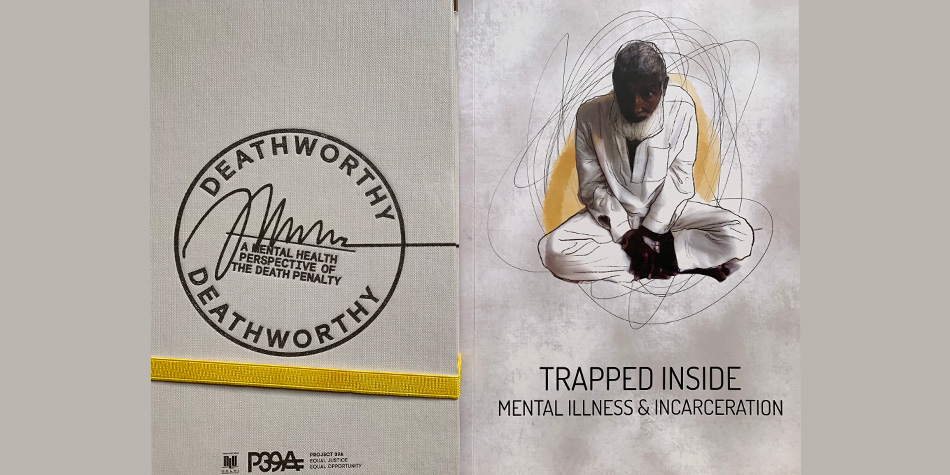
Article(s)
Plus de 8 000 personnes dans les couloirs de la mort en Asie du Sud
By Aurélie Plaçais, directrice, on 3 May 2022
Avec peu d’exécutions mais l’un des plus grands couloirs de la mort au monde, l’Asie du Sud est à la croisée des chemins. Des publications récentes explorent la santé mentale des personnes condamnées à mort et leur contexte social et économique au Bangladesh, en Inde, aux Maldives, au Pakistan et au Sri Lanka.
2022
Bangladesh
Death Row Conditions
Death Row Conditions
Warning: Undefined variable $tmp in /home/worldcoa/coalition2020/wp-content/themes/WCADP/template-parts/contents.php on line 27
India
Mental Illness
Maldives
Mental Illness
Pakistan
Sri Lanka

Article(s)
Over 8,000 people on death row in South Asia
By Aurelie Placais, staff, on 3 May 2022
With few executions but one of the biggest death rows in the world, South Asia is at a crossroad. Recent publications explore mental health on death row and social and economic background of people sentenced to death in Bangladesh, India, the Maldives, Pakistan and Sri Lanka.
Bangladesh
Death Row Conditions
Warning: Undefined variable $tmp in /home/worldcoa/coalition2020/wp-content/themes/WCADP/template-parts/contents.php on line 27
India
Maldives
Mental Illness
Pakistan
Sri Lanka
Document(s)
Death Penalty in India – Annual Statistics Report 2021
By Project 39A, on 4 February 2022
2022
Academic report
Warning: Undefined variable $liste_type_doc in /home/worldcoa/coalition2020/wp-content/themes/WCADP/template-parts/contents-document.php on line 21
Warning: Undefined variable $liste_pays in /home/worldcoa/coalition2020/wp-content/themes/WCADP/template-parts/contents-document.php on line 40
India
Warning: Undefined variable $tag_langue in /home/worldcoa/coalition2020/wp-content/themes/WCADP/template-parts/contents-document.php on line 85
More details See the document
Project 39A at the National Law University, Delhi published the sixth edition of the Death Penalty in India: Annual Statistics Report which provides an annual update on the use of the death penalty in India along with legislative and international developments on the issue. As on 31st December 2021, there were 488 prisoners on death row across India (a steep rise of nearly 21% from 2020), with Uttar Pradesh having the highest number at 86. This is the highest the death row population has been since 2004 as per the data from the Prison Statistics published by the National Crime Records Bureau.
- Document type Academic report
- Countries list India
Warning: Undefined variable $liste_themes in /home/worldcoa/coalition2020/wp-content/themes/WCADP/template-parts/contents-document.php on line 114
Warning: Undefined variable $lien_langue in /home/worldcoa/coalition2020/wp-content/themes/WCADP/template-parts/contents-document.php on line 127
Document(s)
Deathworthy: a mental health perspective of the death penalty
By Project 39A, on 7 October 2021
2021
Academic report
Warning: Undefined variable $liste_type_doc in /home/worldcoa/coalition2020/wp-content/themes/WCADP/template-parts/contents-document.php on line 21
Warning: Undefined variable $liste_pays in /home/worldcoa/coalition2020/wp-content/themes/WCADP/template-parts/contents-document.php on line 40
India
Warning: Undefined variable $liste_themes in /home/worldcoa/coalition2020/wp-content/themes/WCADP/template-parts/contents-document.php on line 35
Mental Illness
Warning: Undefined variable $tag_langue in /home/worldcoa/coalition2020/wp-content/themes/WCADP/template-parts/contents-document.php on line 85
More details See the document
A first of its kind report, Deathworthy, presents empirical data on mental illness and intellectual disability among death row prisoners in India and the psychological consequences of living on death row. The report finds that an overwhelming majority of death row prisoners interviewed (62.2%) had a mental illness and 11% had intellectual disability. The proportion of persons with mental illness and intellectual disability on death row is overwhelmingly higher than the proportion in the community population. The report also establishes correlations between conditions of death row incarceration and mental illness and ill-health. Led and conceptualised by Maitreyi Misra (Head, Mental Health and Criminal Justice, Project 39A, National Law University Delhi), the study was conducted under the guidance of Dr. Pratima Murthy (Director, NIMHANS), Dr Sanjeev Jain (Senior Professor, Deptt of Psychiatry, NIMHANS) and Dr Gitanjali Narayanan (Associate Professor, Deptt of Psychology, NIMHANS).
- Document type Academic report
- Countries list India
- Themes list Mental Illness
Warning: Undefined variable $lien_langue in /home/worldcoa/coalition2020/wp-content/themes/WCADP/template-parts/contents-document.php on line 127
Document(s)
Death Penalty India Report – Volume 2
By Anup Surendranath / National Law University, New Delhi Press, on 8 September 2020
2020
NGO report
Warning: Undefined variable $liste_type_doc in /home/worldcoa/coalition2020/wp-content/themes/WCADP/template-parts/contents-document.php on line 21
Warning: Undefined variable $liste_pays in /home/worldcoa/coalition2020/wp-content/themes/WCADP/template-parts/contents-document.php on line 40
India
Warning: Undefined variable $tag_langue in /home/worldcoa/coalition2020/wp-content/themes/WCADP/template-parts/contents-document.php on line 85
More details See the document
This project sought to answer questions regarding the socio-economic profile of prisoners sentenced to death in India while looking into the process of death sentencing in itself. By means of meaningful statistics and case studies, this report manages to enlighten some aspects of the death penalty in India which are generally not fully explored and triggers a sociological discussion on these thorny issues that goes beyond the legal analysis of Supreme Court judgments.Chapters:6) Experience in custody7) Trial and appeals8) Living on death row9) Seeking mercy10) ImpactLink to Volume 1: http://www.worldcoalition.org/resourcecentre/document/id/1462890615
- Document type NGO report
- Countries list India
Warning: Undefined variable $liste_themes in /home/worldcoa/coalition2020/wp-content/themes/WCADP/template-parts/contents-document.php on line 114
Warning: Undefined variable $liste_themes in /home/worldcoa/coalition2020/wp-content/themes/WCADP/template-parts/contents-document.php on line 121
- Themes list Discrimination, Country/Regional profiles,
Warning: Undefined variable $lien_langue in /home/worldcoa/coalition2020/wp-content/themes/WCADP/template-parts/contents-document.php on line 127
Document(s)
Death Penalty India Report – Volume 1
By Anup Surendranath / National Law University, New Delhi Press, on 8 September 2020
NGO report
Warning: Undefined variable $liste_type_doc in /home/worldcoa/coalition2020/wp-content/themes/WCADP/template-parts/contents-document.php on line 21
Warning: Undefined variable $liste_pays in /home/worldcoa/coalition2020/wp-content/themes/WCADP/template-parts/contents-document.php on line 40
India
Warning: Undefined variable $tag_langue in /home/worldcoa/coalition2020/wp-content/themes/WCADP/template-parts/contents-document.php on line 85
More details See the document
This project sought to answer questions regarding the socio-economic profile of prisoners sentenced to death in India while looking into the process of death sentencing in itself. By means of meaningful statistics and case studies, this report manages to enlighten some aspects of the death penalty in India which are generally not fully explored and triggers a sociological discussion on these thorny issues that goes beyond the legal analysis of Supreme Court judgments.Chapters:1) Coverage of the project2) Durations on death row3) Nature of crimes4) Socio-economic profile5) Legal assistanceLink to Volume 2: http://www.worldcoalition.org/resourcecentre/document/id/1463669874
- Document type NGO report
- Countries list India
Warning: Undefined variable $liste_themes in /home/worldcoa/coalition2020/wp-content/themes/WCADP/template-parts/contents-document.php on line 114
Warning: Undefined variable $liste_themes in /home/worldcoa/coalition2020/wp-content/themes/WCADP/template-parts/contents-document.php on line 121
- Themes list Discrimination, Country/Regional profiles,
Warning: Undefined variable $lien_langue in /home/worldcoa/coalition2020/wp-content/themes/WCADP/template-parts/contents-document.php on line 127
Document(s)
Supreme Court of India ruling in Shatrughan Chauhan & Anr. Versus Union of India & Ors.
By P. Sathasivam / Supreme Court of India / Ranjan Gogoi / Shiva Kirti Singh, on 8 September 2020
Multimedia content
Warning: Undefined variable $liste_type_doc in /home/worldcoa/coalition2020/wp-content/themes/WCADP/template-parts/contents-document.php on line 21
Warning: Undefined variable $liste_pays in /home/worldcoa/coalition2020/wp-content/themes/WCADP/template-parts/contents-document.php on line 40
India
Warning: Undefined variable $tag_langue in /home/worldcoa/coalition2020/wp-content/themes/WCADP/template-parts/contents-document.php on line 85
More details See the document
The Court (pictured) ruled in favour of two prisoners who petitioned for a commutation of their death sentences to life imprisonment, claiming “the unconscionably long delay in deciding the mercy petition has caused the onset of chronic psychotic illness”. It acknowledged the “unbearable mental agony after confirmation of death sentence” and added that in some cases “death-row prisoners lost their mental balance on account of prolonged anxiety and suffering experienced on death row”.
- Document type Multimedia content
- Countries list India
Warning: Undefined variable $liste_themes in /home/worldcoa/coalition2020/wp-content/themes/WCADP/template-parts/contents-document.php on line 114
Warning: Undefined variable $liste_themes in /home/worldcoa/coalition2020/wp-content/themes/WCADP/template-parts/contents-document.php on line 121
- Themes list Mental Illness, International law, Death Row Conditions, Death Row Phenomenon,
Warning: Undefined variable $lien_langue in /home/worldcoa/coalition2020/wp-content/themes/WCADP/template-parts/contents-document.php on line 127
Document(s)
Note verbale dated 16 April 2013 from the Permanent Mission of Egypt to the United Nations addressed to the Secretary-General
By United Nations, on 8 September 2020
United Nations report
Warning: Undefined variable $liste_type_doc in /home/worldcoa/coalition2020/wp-content/themes/WCADP/template-parts/contents-document.php on line 21
Warning: Undefined variable $liste_pays in /home/worldcoa/coalition2020/wp-content/themes/WCADP/template-parts/contents-document.php on line 40
Afghanistan
Antigua and Barbuda
Bahrain
Bangladesh
Barbados
Botswana
Brunei Darussalam
Chad
China
Democratic People's Republic of Korea
Egypt
Equatorial Guinea
Eritrea
Eswatini
Ethiopia
Grenada
Guyana
India
Iran (Islamic Republic of)
Iraq
Jamaica
Kuwait
Lao People's Democratic Republic
Libya
Malaysia
Mauritania
Warning: Undefined variable $liste_themes in /home/worldcoa/coalition2020/wp-content/themes/WCADP/template-parts/contents-document.php on line 35
Moratorium
Myanmar
Nigeria
Oman
Pakistan
Papua New Guinea
Qatar
Saint Kitts and Nevis
Saint Lucia
Saint Vincent and the Grenadines
Saudi Arabia
Singapore
Solomon Islands
Somalia
Sudan
Syrian Arab Republic
Tonga
Trinidad and Tobago
Uganda
United Arab Emirates
Yemen
Zimbabwe
Warning: Undefined variable $tag_langue in /home/worldcoa/coalition2020/wp-content/themes/WCADP/template-parts/contents-document.php on line 54
Warning: Undefined variable $lien_langue in /home/worldcoa/coalition2020/wp-content/themes/WCADP/template-parts/contents-document.php on line 55
aresfrruzh-hant
More details See the document
The permanent missions to the United Nations in New York listed below have the honour to refer to General Assembly resolution 67/176, entitled “Moratorium on the use of the death penalty”, which was adopted by the Third Committee on 19 November 2012, and subsequently by the General Assembly on 20 December 2012 by a recorded vote. The permanent missions wish to place on record that they are in persistent objection to any attempt to impose a moratorium on the use of the death penalty or its abolition in contravention of existing stipulations under international law, for the following reasons:
- Document type United Nations report
- Countries list Afghanistan / Antigua and Barbuda / Bahrain / Bangladesh / Barbados / Botswana / Brunei Darussalam / Chad / China / Democratic People's Republic of Korea / Egypt / Equatorial Guinea / Eritrea / Eswatini / Ethiopia / Grenada / Guyana / India / Iran (Islamic Republic of) / Iraq / Jamaica / Kuwait / Lao People's Democratic Republic / Libya / Malaysia / Mauritania / Myanmar / Nigeria / Oman / Pakistan / Papua New Guinea / Qatar / Saint Kitts and Nevis / Saint Lucia / Saint Vincent and the Grenadines / Saudi Arabia / Singapore / Solomon Islands / Somalia / Sudan / Syrian Arab Republic / Tonga / Trinidad and Tobago / Uganda / United Arab Emirates / Yemen / Zimbabwe
- Themes list Moratorium
- Available languages مذكرة شفوية مؤرخة 16 نيسان/أبريل 2013 موجهة إلى الأمين العام من البعثة الدائمة لمصر لدى الأمم المتحدةNota verbal de fecha 16 de abril de 2013 dirigida al Secretario General por la Misión Permanente de Egipto ante las Naciones UnidasNote verbale datée du 16 avril 2013, adressée au Secrétaire général par la Mission permanente de l’Égypte auprès de l’Organisation des Nations UniesВербальная нота Постоянного представительства Египта при Организации Объединенных Наций от 16 апреля 2013 года на имя Генерального секретаря2013年4月16日埃及常驻联合国代表团给秘书长的普通照会
Document(s)
Hindi : 17 भारतीयों की अपील पर यूएई करे निष्पक्ष जांच: एमनेस्टी
By BBC, on 8 September 2020
Academic report
Warning: Undefined variable $liste_type_doc in /home/worldcoa/coalition2020/wp-content/themes/WCADP/template-parts/contents-document.php on line 21
Warning: Undefined variable $liste_pays in /home/worldcoa/coalition2020/wp-content/themes/WCADP/template-parts/contents-document.php on line 40
India
Warning: Undefined variable $tag_langue in /home/worldcoa/coalition2020/wp-content/themes/WCADP/template-parts/contents-document.php on line 85
More details See the document
युक्त अरब अमीरात में एक पाकिस्तानी नागरिक की हत्या के लिए मौत की सज़ा पाने वाले 17 भारतीयों के मामले में मानवाधिकार संस्था एमनेस्टी इंटरनेशन ने यूएई की कड़ी आलोचना की है. एमनेस्टी ने भारतीयों को कथित तौर पर ‘प्रताड़ित किए जाने और ज़बरदस्ती उनसे अपराध मनवाने’ के बारे में यूएई की आलोचना की है.
- Document type Academic report
- Countries list India
Warning: Undefined variable $liste_themes in /home/worldcoa/coalition2020/wp-content/themes/WCADP/template-parts/contents-document.php on line 114
Warning: Undefined variable $liste_themes in /home/worldcoa/coalition2020/wp-content/themes/WCADP/template-parts/contents-document.php on line 121
- Themes list Networks,
Warning: Undefined variable $lien_langue in /home/worldcoa/coalition2020/wp-content/themes/WCADP/template-parts/contents-document.php on line 127
Document(s)
India: Lethal Lottery: The Death Penalty in India – A study of Supreme Court judgments in death penalty cases 1950-2006
By Amnesty International / Bikram Jeet Batra, on 8 September 2020
NGO report
Warning: Undefined variable $liste_type_doc in /home/worldcoa/coalition2020/wp-content/themes/WCADP/template-parts/contents-document.php on line 21
Warning: Undefined variable $liste_pays in /home/worldcoa/coalition2020/wp-content/themes/WCADP/template-parts/contents-document.php on line 40
India
Warning: Undefined variable $tag_langue in /home/worldcoa/coalition2020/wp-content/themes/WCADP/template-parts/contents-document.php on line 85
More details See the document
The report shows that contrary to the majority Bench’s views and intentions in Bachan Singh, errors and arbitrariness have not been checked by the safeguards in place, and no small role in this has been played by the judges themselveswho have rarely adhered to the requirements laid down in Bachan Singh, making it clear that it is commonly the judge’s subjective discretion that eventually decides the fate of the accused-appellant.
- Document type NGO report
- Countries list India
Warning: Undefined variable $liste_themes in /home/worldcoa/coalition2020/wp-content/themes/WCADP/template-parts/contents-document.php on line 114
Warning: Undefined variable $liste_themes in /home/worldcoa/coalition2020/wp-content/themes/WCADP/template-parts/contents-document.php on line 121
- Themes list Due Process , Statistics,
Warning: Undefined variable $lien_langue in /home/worldcoa/coalition2020/wp-content/themes/WCADP/template-parts/contents-document.php on line 127
Document(s)
Indian Movie on the Death Penalty: Dhananjoy
By Book My Show, on 8 September 2020
Multimedia content
Warning: Undefined variable $liste_type_doc in /home/worldcoa/coalition2020/wp-content/themes/WCADP/template-parts/contents-document.php on line 21
Warning: Undefined variable $liste_pays in /home/worldcoa/coalition2020/wp-content/themes/WCADP/template-parts/contents-document.php on line 40
India
Warning: Undefined variable $tag_langue in /home/worldcoa/coalition2020/wp-content/themes/WCADP/template-parts/contents-document.php on line 85
More details See the document
The story is based on the conviction Dhananjoy, accused for the gruesome murder of Hetal Parekh, which took place in the year 1990. On the basis of circumstantial evidence and on the basis of the deceased mother’s statement, Dhananjoy Chatterjee- a security guard, was executed and hanged to death on the early hours of 15th August 2004, after serving imprisonment for 14 long years and after having appealed to all levels of court in the country; and finally, to the President of India.
- Document type Multimedia content
- Countries list India
Warning: Undefined variable $liste_themes in /home/worldcoa/coalition2020/wp-content/themes/WCADP/template-parts/contents-document.php on line 114
Warning: Undefined variable $liste_themes in /home/worldcoa/coalition2020/wp-content/themes/WCADP/template-parts/contents-document.php on line 121
- Themes list Public opinion, Innocence, Death Row Conditions, Discrimination, Death Penalty,
Warning: Undefined variable $lien_langue in /home/worldcoa/coalition2020/wp-content/themes/WCADP/template-parts/contents-document.php on line 127
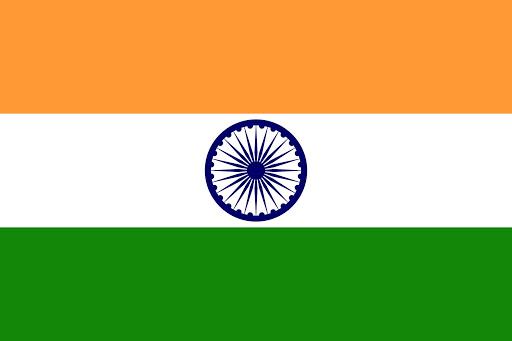
Article(s)
Punishing Sex Crimes: The Evolution of the Death Penalty in India
By Hédia Zaalouni, on 21 April 2020
The Death Penalty in India: Annual Statistics, an annual report published in January 2020 by Project 39A, details the application of the death penalty in India during the year 2019. It also describes developments in criminal justice and policy in the country.
2020
India
Document(s)
Death Penalty in India: Annual Statistics Report 2020
By Project 39A, on 1 January 2020
2020
Academic report
Warning: Undefined variable $liste_type_doc in /home/worldcoa/coalition2020/wp-content/themes/WCADP/template-parts/contents-document.php on line 21
Warning: Undefined variable $liste_pays in /home/worldcoa/coalition2020/wp-content/themes/WCADP/template-parts/contents-document.php on line 40
India
Warning: Undefined variable $tag_langue in /home/worldcoa/coalition2020/wp-content/themes/WCADP/template-parts/contents-document.php on line 85
More details See the document
The ‘Death Penalty in India: Annual Statistics’ attempts to create a comprehensive year-by-year documentation of movements in the death row population in India. The publication tracks important political and legal developments in the administration of the death penalty and the criminal justice system in the year 2020.
- Document type Academic report
- Countries list India
Warning: Undefined variable $liste_themes in /home/worldcoa/coalition2020/wp-content/themes/WCADP/template-parts/contents-document.php on line 114
Warning: Undefined variable $lien_langue in /home/worldcoa/coalition2020/wp-content/themes/WCADP/template-parts/contents-document.php on line 127
Document(s)
on 1 January 2020
Book
Warning: Undefined variable $liste_type_doc in /home/worldcoa/coalition2020/wp-content/themes/WCADP/template-parts/contents-document.php on line 21
Warning: Undefined variable $liste_pays in /home/worldcoa/coalition2020/wp-content/themes/WCADP/template-parts/contents-document.php on line 40
India
Warning: Undefined variable $tag_langue in /home/worldcoa/coalition2020/wp-content/themes/WCADP/template-parts/contents-document.php on line 85
More details See the document
In Abolishing the Death Penalty: Why India Should Say No to Capital Punishment, Gopalkrishna Gandhi asks fundamental questions about the death penalty. Is taking another life a just punishment or an act as inhuman as the crime that triggered it? Does having capital punishment in the law books deter crime? His conclusions are unequivocal: Cruel in its operation, ineffectual as deterrence, unequal in its application in an uneven society, liable like any punishment to be in error but incorrigibly so, these grievous flaws that are intrinsic to the death penalty are compounded by yet another—it leaves the need for retribution unrequited and simply makes society more bloodthirsty.Examining capital punishment around the world from the time of Socrates onwards, the author delves into how the penalty was applied in India during the times of Asoka, Sikandar Lodi, Krishnadevaraya, the Peshwas and the British Raj, and how it works today.
- Document type Book
- Countries list India
Warning: Undefined variable $liste_themes in /home/worldcoa/coalition2020/wp-content/themes/WCADP/template-parts/contents-document.php on line 114
Warning: Undefined variable $liste_themes in /home/worldcoa/coalition2020/wp-content/themes/WCADP/template-parts/contents-document.php on line 121
- Themes list Public debate, Deterrence , Trend Towards Abolition, Right to life, Death Penalty, Country/Regional profiles,
Warning: Undefined variable $lien_langue in /home/worldcoa/coalition2020/wp-content/themes/WCADP/template-parts/contents-document.php on line 127
Document(s)
Failings of the Supreme Court, Human Sacrifice, Sentencing and the Death Penalty
By Anup Surendranath / Economic and Political Weekly, on 1 January 2020
Article
Warning: Undefined variable $liste_type_doc in /home/worldcoa/coalition2020/wp-content/themes/WCADP/template-parts/contents-document.php on line 21
Warning: Undefined variable $liste_pays in /home/worldcoa/coalition2020/wp-content/themes/WCADP/template-parts/contents-document.php on line 40
India
Warning: Undefined variable $tag_langue in /home/worldcoa/coalition2020/wp-content/themes/WCADP/template-parts/contents-document.php on line 85
More details See the document
In the judicial discourse on the relationship between human sacrifice and punishment in criminal law, there are glaring errors. Looking closely at the Supreme Court’s judgment in Ishwari Lal Yadav v State of Chhattisgarh, the deviation from the principle of individualised sentencing and the consequences of ignoring evidence on the complex anthropological and psychological dimensions of human sacrifice are reflected upon.
- Document type Article
- Countries list India
Warning: Undefined variable $liste_themes in /home/worldcoa/coalition2020/wp-content/themes/WCADP/template-parts/contents-document.php on line 114
Warning: Undefined variable $liste_themes in /home/worldcoa/coalition2020/wp-content/themes/WCADP/template-parts/contents-document.php on line 121
- Themes list Hanging,
Warning: Undefined variable $lien_langue in /home/worldcoa/coalition2020/wp-content/themes/WCADP/template-parts/contents-document.php on line 127

Article(s)
Critical expansion of the use of the death Penalty in India in 2018
By Project 39A, on 6 February 2019
In 2018 India followed a particularly repressive path by sentencing 162 people to death.
2019
India
Document(s)
A BRIEF INTRODUCTION TO THE INDIAN JUDICIAL SYSTEM AND COURT HIERARCHY
By MARY KOZLOVSKI / Asian Law Centre, on 1 January 2019
2019
Multimedia content
Warning: Undefined variable $liste_type_doc in /home/worldcoa/coalition2020/wp-content/themes/WCADP/template-parts/contents-document.php on line 21
Warning: Undefined variable $liste_pays in /home/worldcoa/coalition2020/wp-content/themes/WCADP/template-parts/contents-document.php on line 40
India
Warning: Undefined variable $tag_langue in /home/worldcoa/coalition2020/wp-content/themes/WCADP/template-parts/contents-document.php on line 85
More details See the document
This paper provides an introduction to the Indian judicial system and court hierarchy, outlining the jurisdiction of constitutional and statutory courts and tribunals and the appointment, tenure and removal of judges. It describes forms of alternative dispute resolution that have emerged in recent decades, partly to combat delays in the court system, and informal dispute resolution bodies that mediate family disputes, such as Sharia courts. The paper concludes by discussing the contentious issues of delay in the court system, public interest litigation, and appointments to the Supreme and High Courts of India.
- Document type Multimedia content
- Countries list India
Warning: Undefined variable $liste_themes in /home/worldcoa/coalition2020/wp-content/themes/WCADP/template-parts/contents-document.php on line 114
Warning: Undefined variable $lien_langue in /home/worldcoa/coalition2020/wp-content/themes/WCADP/template-parts/contents-document.php on line 127
Article(s)
Director (Research)
By Project 39A, on 14 June 2018
The National Law University, Delhi (“University”) is seeking to engage on a contractual basis, one Director (Research) for Project 39A.
2018
India
Article(s)
Call for interns
By Project 39A, on 14 June 2018
Project 39A offers a minimum of four-week long internships to students of law and related fields.
India
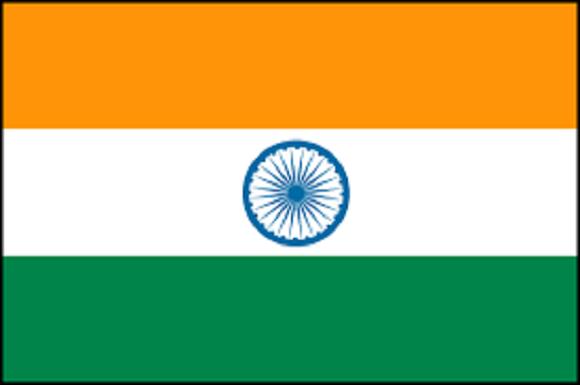
Article(s)
Death Penalty in India in 2017
By National Law University, Delhi, center of the death penalty, on 26 March 2018
A report describing the use of the death penalty in India in 2017 in comparison with 2016 was recently released by the National Law University’s Death Penalty Research Project (based in New Delhi).
2018
India

Article(s)
Release of the Death Penalty India Report
By Marion Gauer, on 20 May 2016
A report describing the socio-economic profiles of death row inmates in India was recently released by the National Law University’s Death Penalty Research Project (based in New Delhi).
2016
India
Article(s)
Internship opportunity at Centre on the Death Penalty, NLU Delhi
By NLU Delhi, on 1 April 2016
The Centre on the Death Penalty is keen to develop a robust and rewarding internship programme that will provide meaningful exposure to the complexities and nuances, in particular, of the administration of the death penalty and the criminal justice system in India more generally, therefore the centre introduces internship program where they accept interns on rolling basis.
2016
India
Document(s)
Abolishing the Death Penalty: Why India Should Say No to Capital Punishment
By Gopalkrishna Gandhi, on 1 January 2016
2016
Book
Warning: Undefined variable $liste_type_doc in /home/worldcoa/coalition2020/wp-content/themes/WCADP/template-parts/contents-document.php on line 21
Warning: Undefined variable $liste_pays in /home/worldcoa/coalition2020/wp-content/themes/WCADP/template-parts/contents-document.php on line 40
India
Warning: Undefined variable $tag_langue in /home/worldcoa/coalition2020/wp-content/themes/WCADP/template-parts/contents-document.php on line 85
More details See the document
In Abolishing the Death Penalty: Why India Should Say No to Capital Punishment, Gopalkrishna Gandhi asks fundamental questions about the ultimate legal punishment awarded to those accused of major crimes. Is taking another life a just punishment or an act as inhuman as the crime that triggered it? Does having capital punishment in the law books deter crime? His conclusions are unequivocal: Cruel in its operation, ineffectual as deterrence, unequal in its application in an uneven society, liable like any punishment to be in error but incorrigibly so, these grievous flaws that are intrinsic to the death penalty are compounded by yet another—it leaves the need for retribution (cited as its primary ‘good’) unrequited and simply makes society more bloodthirsty.Examining capital punishment around the world from the time of Socrates onwards, the author delves into how the penalty was applied in India during the times of Asoka, Sikandar Lodi, Krishnadevaraya, the Peshwas and the British Raj, and how it works today
- Document type Book
- Countries list India
Warning: Undefined variable $liste_themes in /home/worldcoa/coalition2020/wp-content/themes/WCADP/template-parts/contents-document.php on line 114
Warning: Undefined variable $liste_themes in /home/worldcoa/coalition2020/wp-content/themes/WCADP/template-parts/contents-document.php on line 121
- Themes list Capital offences, Public debate, Deterrence , Trend Towards Abolition, Right to life, Cruel, Inhuman and Degrading Treatment and Punishment, Death Penalty, Country/Regional profiles,
Warning: Undefined variable $lien_langue in /home/worldcoa/coalition2020/wp-content/themes/WCADP/template-parts/contents-document.php on line 127
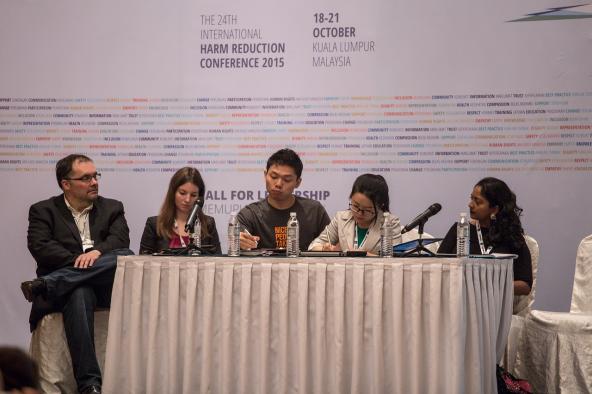
Article(s)
The death penalty for drugs must go, it has no place in a civilised society
By Aurélie Plaçais, on 21 October 2015
Those were the words of Anand Grover, former UN Special Rapporteur on the right to health during the opening ceremony of Harm Reduction International’s 24th conference in Kuala Lumpur, Malaysia.
2015
China
Drug Offenses
India
Indonesia
Malaysia

Article(s)
Imposing the death penalty has not reduced drug crimes in Asia -New Report
By FIDH & World Coalition, on 10 October 2015
Death penalty for drug crimes in Asia: an illegal practice reveals report published on World Day by FIDH and the World Coalition
2015
Afghanistan
Bangladesh
China
Democratic People's Republic of Korea
Drug Offenses
India
Indonesia
Iran (Islamic Republic of)
Japan
Lao People's Democratic Republic
Malaysia
Maldives
Myanmar
Pakistan
Republic of Korea
Singapore
Sri Lanka
Taiwan
Thailand
Viet Nam
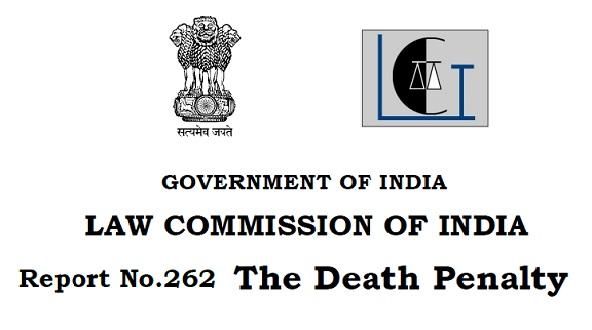
Article(s)
The Law Commission of India (Almost) calls for Abolition
By Elisa Belotti, on 15 September 2015
The Law Commission of India published in August 2015 a Report on death penalty in which it recommends India to move towards the abolition of death penalty, with an exception for terrorism related crimes.
2015
India

Article(s)
Asia develops into hub of abolitionist dialogue
By Emile Carreau, on 6 November 2014
World Coalition member, Community of Sant’Egidio, has organised anti-death penalty conferences in Japan and the Philippines, both of which were overwhelmingly attended. Further conferences in the region are set to continue.
2014
Cambodia
India
Indonesia
Japan
Lao People's Democratic Republic
Philippines
Sri Lanka
Viet Nam
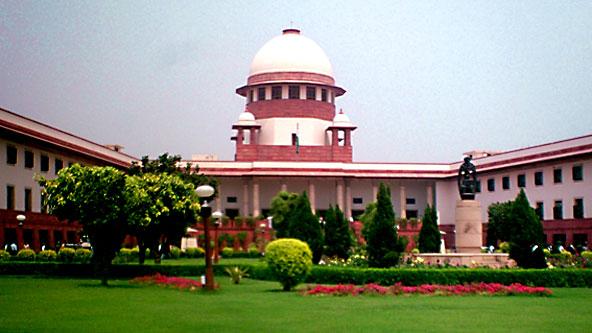
Article(s)
Indian ruling highlights importance of next World Day
By Emile Carreau, on 3 February 2014
On 21 January, India’s Supreme Court formally banned the execution of mentally ill prisoners and in doing so highlighted why this year’s World Day against the Death Penalty, which is dedicated to issues of mental health, is so important.
2014
India
Intellectual Disability
Mental Illness

Article(s)
Asian progress paves the way for new strategies
By Thomas Hubert, on 20 June 2013
Although most executions continue to take place in Asia, their number is going down – and abolitionists are coming up with new ideas to bring about abolition.
2013
India
Japan
Malaysia
Mongolia
Moratorium
Warning: Undefined variable $tmp in /home/worldcoa/coalition2020/wp-content/themes/WCADP/template-parts/contents.php on line 27
Singapore
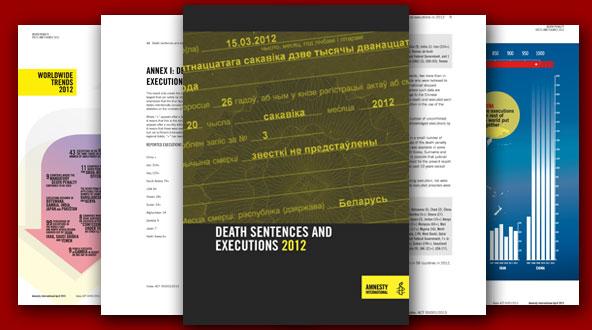
Article(s)
Only one in 10 countries carried out executions in 2012
By Tiziana Trotta, on 10 April 2013
At least 682 people were executed last year aside from China, according to Amnesty International.
2013
Afghanistan
Bahrain
Barbados
Belarus
Burkina Faso
China
Death Row Conditions
Democratic People's Republic of Korea
Egypt
Gambia
Ghana
Guyana
India
Iran (Islamic Republic of)
Iraq
Malawi
Moratorium
Pakistan
Saudi Arabia
Sierra Leone
Singapore
Syrian Arab Republic
Taiwan
Trinidad and Tobago
Viet Nam
Yemen
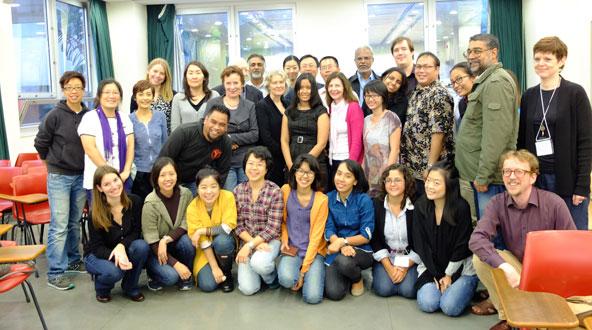
Article(s)
Building a death penalty-free future in Asia
By Aurélie Plaçais, on 6 December 2012
Ways to strengthen transregional action led by Asian activists and ideas to combat obstruction from national authorities were among the issues discussed at the third ADPAN consultative meeting.
2012
Australia
Bangladesh
China
India
Indonesia
Japan
Malaysia
Mongolia
Moratorium
Pakistan
Philippines
Republic of Korea
Singapore
Taiwan
Thailand
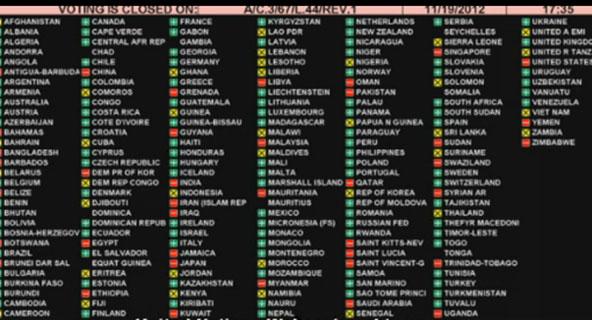
Article(s)
UN General Assembly Committee adopts draft moratorium resolution
By Maria Donatelli, on 20 November 2012
A majority of the world’s nations have approved a text calling for a global moratorium on executions, with stronger support than in a previous vote two years ago.
2012
Afghanistan
Bangladesh
Botswana
Central African Republic
Croatia
Cuba
Egypt
India
Indonesia
Japan
Malaysia
Maldives
Mauritania
Moratorium
Morocco
Niger
Oman
Singapore
South Sudan
Sri Lanka
Sudan
Suriname
Tunisia
Viet Nam
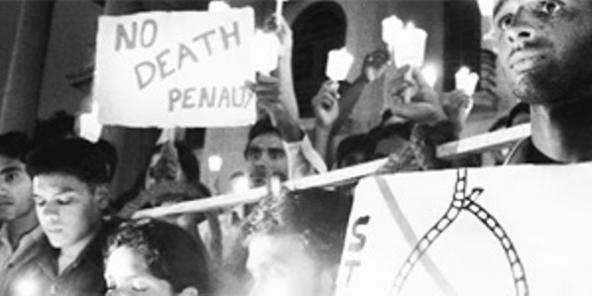
Article(s)
India should join nations abolishing the death penalty
By Navkiran Singh, Lawyers For Human Rights International, on 27 September 2012
The debate has recently been growing in India, with former President Pratibha Patil commuting the death sentence of 35 convicts in a few years and 14 former judges challenging death penalties confirmed by the Supreme Court.
Although India has not executed anyone since 2004, more than 400 people are on death row and the courts hand down fresh death sentences every year. Navkiran Singh, general secretary of World Coalition member organisation, Lawyers For Human Rights International, explains why he believes there is a positive move in his country.
2012
India
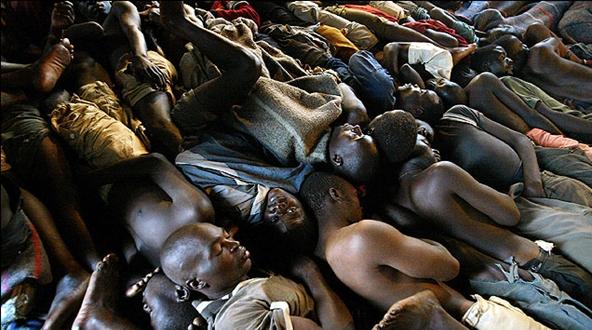
Article(s)
Asia still top executioner but more divided than ever: Hands Off Cain Report
By Aurélie Plaçais, on 11 August 2011
Hands Off Cain’s 2011 Report contains the most important facts regarding the practice of the death penalty in 2010 and the first six months of 2011.
2011
China
Democratic People's Republic of Korea
Drug Offenses
India
Iran (Islamic Republic of)
Mongolia
Moratorium
Myanmar
Viet Nam
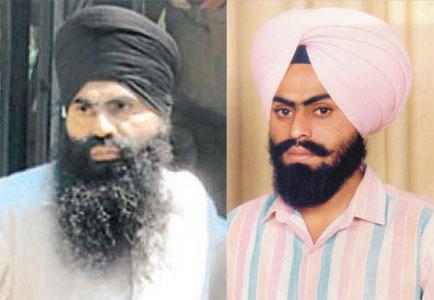
Article(s)
India asked to maintain the moratorium on executions
By Emile Carreau, on 28 July 2011
After a six year moratorium on executions, India’s President Patil has rejected the mercy petition of two Indian nationals despite international outcry to maintain the moratorium.
2011
Cruel, Inhuman and Degrading Treatment and Punishment
Drug Offenses
India
Moratorium
Article(s)
Pressured Indian firm stops exporting lethal drugs
on 8 April 2011
The decision of Kayem to stop supplying the US with execution drugs may well have been influenced by a campaign organized by World Coalition member Reprieve.
2011
Cruel, Inhuman and Degrading Treatment and Punishment
India
United States
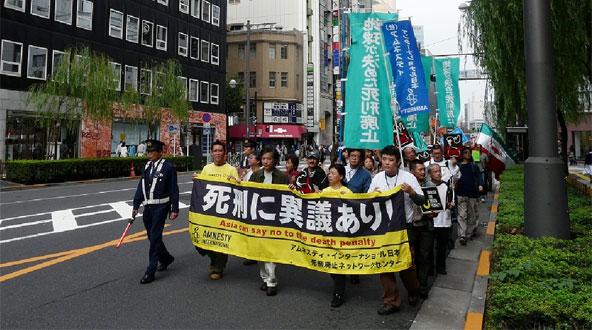
Article(s)
10.10.10 Looking back on the World Day in Asia
on 3 December 2010
The Anti-Death Penalty Asia Network rounds up reports from the main events organised across the Asia-Pacific region for World Day Against the Death Penalty on October 10.
2010
Australia
Bangladesh
India
Indonesia
Iran (Islamic Republic of)
Italy
Japan
Pakistan
Singapore
Terrorism
United States
Article(s)
Flurry of educational events on World Day Against the Death Penalty
on 6 November 2009
An abolitionist wave of marches, cultural happenings, petition signings and educational events swept across the world for the 7th World Day on October 10.
2009
Australia
Clemency
Democratic Republic of the Congo
India
Indonesia
Innocence
Public Opinion
Taiwan
United States
Article(s)
Activists oppose the death penalty across Asia
on 30 October 2008
Although European activists were slow to take action on World Day Against the Death Penalty, their Asian counterparts showed their strength, especially in the World Coalition’s target countries.
2008
India
Japan
Mongolia
Pakistan
Public Opinion
Republic of Korea
Taiwan
Article(s)
DVD carries the voice of abolitionists in Asian languages
on 4 August 2008
A DVD released by ADPAN features a campaigning video made from interviews with international anti-death penalty activists in 13 Asian languages.
2008
China
India
Indonesia
Japan
Lao People's Democratic Republic
Mongolia
Pakistan
Philippines
Republic of Korea
Thailand
Viet Nam
Article(s)
India: a “lethal lottery”
on 15 May 2008
A study of the rulings by New Delhi’s Supreme Court for more than 50 years concluded that “the administration of the death penalty in India is manifestly flawed”.
2008
Fair Trial
India
Innocence
Legal Representation
Terrorism
Document(s)
Views on the death penalty among college students in India
By Eric G. Lambert / Sudershan Pasupuleti / Punishment and Society / Shanhe Jiang / K. Jaishankar / Jagadis V. Bhimarasetty, on 1 January 2008
2008
Article
Warning: Undefined variable $liste_type_doc in /home/worldcoa/coalition2020/wp-content/themes/WCADP/template-parts/contents-document.php on line 21
Warning: Undefined variable $liste_pays in /home/worldcoa/coalition2020/wp-content/themes/WCADP/template-parts/contents-document.php on line 40
India
Warning: Undefined variable $tag_langue in /home/worldcoa/coalition2020/wp-content/themes/WCADP/template-parts/contents-document.php on line 85
More details See the document
While research abounds on attitudes toward capital punishment in the United States, such work has been lacking in non-western nations — particularly in India, the world’s largest democracy. Data recently collected have revealed variance in levels of support for the death penalty among Indian college students: 44 percent express some degree of opposition, 13 percent are uncertain, and 43 percent express some degree of support. Reasons for support or opposition also exhibited variance. According to a multivariate analysis, statistically significant reasons for support included retribution, instrumentalist goals, and incapacitation; while significant reasons for opposition included morality and the belief that deterrence could be achieved by imposing sentences of life without parole.
- Document type Article
- Countries list India
Warning: Undefined variable $liste_themes in /home/worldcoa/coalition2020/wp-content/themes/WCADP/template-parts/contents-document.php on line 114
Warning: Undefined variable $liste_themes in /home/worldcoa/coalition2020/wp-content/themes/WCADP/template-parts/contents-document.php on line 121
- Themes list Public opinion, Public debate,
Warning: Undefined variable $lien_langue in /home/worldcoa/coalition2020/wp-content/themes/WCADP/template-parts/contents-document.php on line 127

